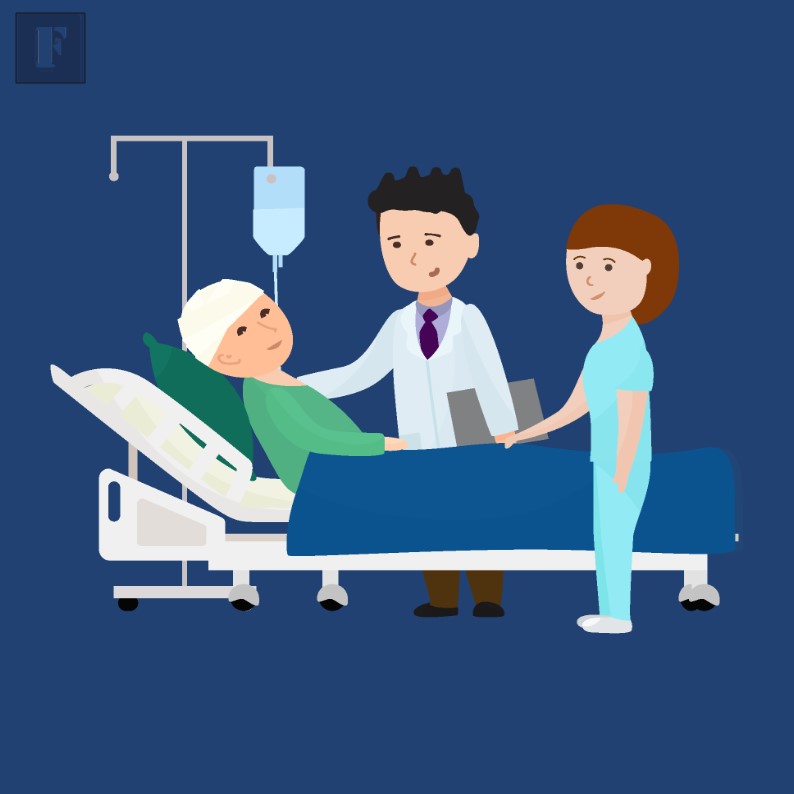
YOU WILL DEFINITELY PAY FOR THIS IN GERMANY
⠀
The only question is: "How much?".
Germany has a law on compulsory health insurance, which applies to both citizens of the country and those who have received permission to reside in Germany. On the one hand, everything is simple, on the other, there are nuances 😉.
There are two types of health insurance in Germany:
State health insurance - Gesetzliche Krankenversicherung (GKV) and private health insurance - privaten Krankenversicherung (PKV).
Let's first deal with compulsory state insurance (GVK), what are its pros / cons, who is suitable and who is not.
⠀
We can say that the state insurance (GVK) equalized everyone: young and old, poor and rich, healthy and sick. Under this insurance, everyone is treated equally, and everyone receives the same level of service, regardless of the premium.
GKV provides reliable health protection for almost 90 percent of the population. More than 70 million citizens are insured here to receive the best medical care.
Solidarity as a principle
GKV works on the principle of solidarity: contributions do not depend on the financial capabilities of members, and medical services are the same for everyone. Currently, about 100 existing health insurance companies provide medically necessary services to their members, as well as to approximately 16 million family members who are co-insured at a family rate. Thus, the basic principle of the compulsory health insurance system is the equalization of solidarity between the healthy and the sick, between the highly paid and the low paid, between the young and the elderly, between single people and families.
IMPORTANT! The amount of the contribution to the state health insurance (GVK) depends on income and is 14,6% + additional contribution (on average 0,8 - 1,2% - differs in different companies).
GVK IS JUST FOR YOU:
◾️Everyone who earns little.
◾️Persons who are not sure that in old age the income will be as high and stable as in youth.
◾️Employees.
◾️Students.
◾️Children and spouses who do not have their own income.
Benefits of state health insurance:
🔹Minimum contribution for low income individuals.
🔹 No need to pay extra for non-working spouses and children.
🔹 Good protection in case of long-term loss of earnings, for example due to illness or maternity leave.
🔹 Can be supplemented with additional health insurance.
🔹 You do not need to pay anything yourself when visiting a doctor.
Disadvantages of state health insurance – Gesetzliche Krankenversicherung:
➡️No fixed contribution rate: the more income, the greater the contribution.
➡️Restriction on the choice of clinics and doctors. Some doctors prefer to work only with private patients who have private health insurance.
➡️If different treatment options are possible, the choice is given towards the cheaper one.
➡️Some services are included in the insurance at a minimum level.
➡️Long waiting time for an appointment with a highly specialized doctor.
⠀
If public health insurance suits you, then it remains only to choose a company that is right for you.
⠀
Have questions? Write in the comments or ask for advice.
⠀
Valery Melekh
Wir wollen mit unseren Empfehlungen möglichst vielen Menschen helfen, ihre Finanzen selber zu machen. Daher sind unsere Inhalte kostenlos im Netz verfügbar. Wir finanzieren unsere aufwändige Arbeit mit sogenannten Affiliate Links. Diese Links kennzeichnen wir mit einem Sternchen (*).
(*) value:
With our recommendations, we want to help as many people as possible to manage their finances. We fund our work with affiliate links. We mark these links with an asterisk (*).






Hello! Now I work and have state insurance. My employer pays for me. But I should soon receive a private widow's pension, which is about 300 euros. This will affect my coverage if I continue to work. Also, if I no longer work, should I pay more due to receiving a private pension?
If you continue to work, it will not affect your public health insurance in any way.
The cost of public health insurance is determined as a percentage of the income of the insured and his employer. In most cases, life insurance payments are not considered income and do not affect the cost of public health insurance.